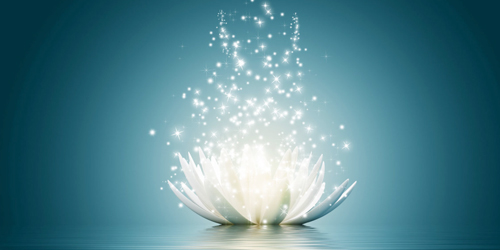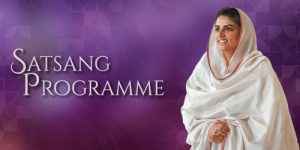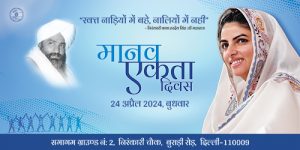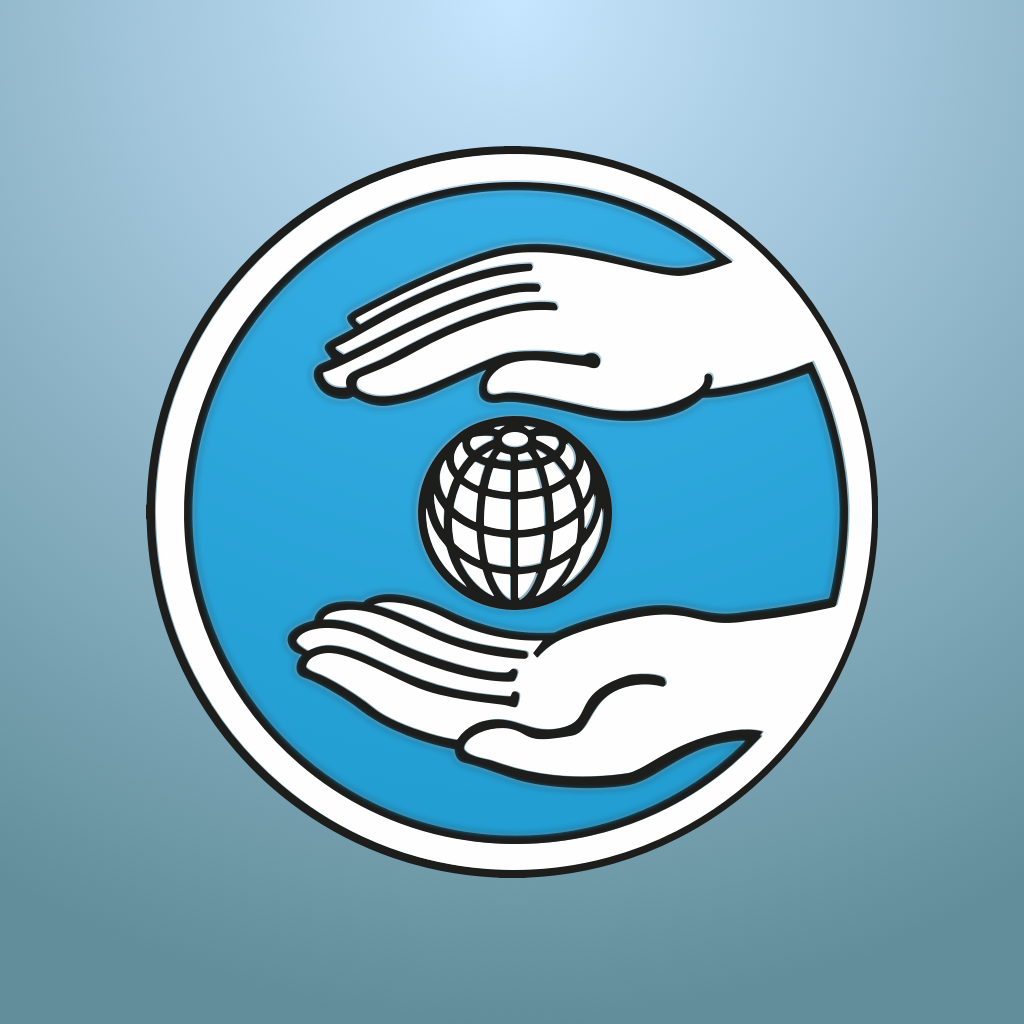As I talk more openly to my family and friends about my involvement with the Nirankari Mission, I am often confronted with a look of worry and concern. I see the suspicion on their faces, accompanied by the comment: is this a cult?
It seems to me that the more I try to explain, the less they understand. This is nothing unusual. History tells us that whoever tried to spread the truth, they had to face ridicule from their own family and community. We should never let this deter us from speaking of the truth.
Recently, I was watching a documentary about a well-known religious organisation. It has many followers, a large number of whom are well known celebrities. On the face of it, the organisation has a universal message – the discovery of one’s true spiritual nature, one’s relationship with the self, the meaning of mankind, the understanding of all forms, the material and spiritual universe and the Supreme Being.
However, the programme revealed some very questionable ethics, dubious tactics and an underlying culture of fear, bullying and strong arm-tactics to recruit people into their ideology. It is exactly these types of high profile religious organisations that make people suspicious and fearful.
Since being blessed with the Gyan, I have felt a growing need to share the experience in the hope of encouraging others to seek out the truth. I am also aware that I must avoid evangelism! So, how do we distinguish ourselves from such spurious organisations? How do we spread the message of Nirankar to those who are unfamiliar with it?
As I understand it, the Nirankari Mission is not interested in converting people or recruiting large numbers of followers. Its real aim is to spread peace. The Gyan gives peace to the soul, which in turn gives peace to the mind. It is exactly this peace that we must radiate out to the world. We must lead by example. We must pursue a life of love, compassion and humility, allowing the light within to shine for all to see. We must let the peace, courage and wisdom that come from the Gyan experience, express itself through the actions of our daily lives.
Just recently, I was in the position of being able to bring a close friend to the Mission. He is an avid atheist, and we have had many discussions around Nirankar. While here, he took the chance to look around and enjoy the surroundings. He particularly liked the posters and pictures on the walls that carry messages of love, peace, courage and wisdom. He acknowledged them as beautiful and of value until he reached one that mentioned God! At this point, his face changed. Over lunch later, I asked him why. If, indeed, he agreed with the sentiments, then why would he be bothered by the word ‘God’? He was unable to answer the question.
The truth is that he was hung up on the label – God. I explained to him that I am known by several names – Margaret, Margaret-Ann, Maggie and Em. In fact, on Sunday I was called Wendy by one of the saints who had forgotten my name! I said it was ok and that I was happy to be Wendy for the day. But I was the very same person! It doesn’t matter what I’m called. It is the same for Nirankar (God), who has many different names. The truth remains the same, despite the label. And if you agree with, and acknowledge the sentiment of the words and actions, then why would you change your mind on seeing the word God? Does it make it less true or valid?
The answer is the ‘ego’. For those who are yet to experience their enlightenment, it is inconceivable to contemplate that there is something bigger than themselves; that they are not in control; and that life isn’t all about them. In order to see God, we must lay down our ego. There is no other way. But this is such a foreign concept to many people. Our experiences from childhood, throughout our lives and our social upbringing encourage us to believe that we are in charge of our lives. So much so that we can make anything happen and bend everything to our will. People put themselves under immense stress and pressure to succeed, to be happy, and to achieve. As they strive to make themselves more powerful, more valid, they get further and further away from the truth.
Everywhere we look, we are encouraged to take control and remember our strength. I recently saw a post on Facebook. A friend was asking everyone to post the statement ‘I am…’ followed by whatever adjective they felt described them. He made some suggestions – slim, healthy, wealthy and wise. He claimed the words ‘I am’ are the most powerful two words in the English language. He may well be right for there is indeed power in the words ‘I am’. But this power is not necessarily positive. If we are so wrapped up in ourselves, it makes us blind to others, and more importantly, to the truth. In reality, there is no ‘I’ only ‘us’.
I am reminded of a man who was getting married. During the preparations for the wedding, he was told that he would be expected to kneel before the altar for prayers. He refused, saying that he kneels before no one. He never has and never will. The minister explained that some people actually prostrate themselves before an altar in reverence to God. This was inconceivable to the man. This is equally so to many people who are yet to experience their enlightenment, particularly those who think that the most important and powerful words are – I Am.
And yet, to bow or kneel at the feet of others (as we often do in Satsang, or when in the company of saints) is the most beautiful and humbling experience. To lay down our ego and recognise the divinity in others is such a powerful experience. When you know that you are one with God and you recognise divinity in everyone else, it is the most natural and beautiful thing to want to bow to the feet of others. This practice is designed to get us back in touch with our humility, such that we may reduce the hold of ego over us.
As I begin to discuss my faith with friends and family, I am often told that they don’t have an issue with it if that is what I ‘need’. The implication being that I ‘need’ something – a crutch or something to hold onto in order to survive. There is an implied weakness in my ‘need’ to have faith. My reply to them is that far from it being a weakness, I see faith as a sign of strength. It is true that in order to see God, be at one with God, one has to surrender completely. Again, the word surrender can be interpreted as weakness, as giving up, giving in or submitting. But in surrendering to God, you find great strength, courage, wisdom, fortitude, love and above all else, humility. To lay down one’s ego requires great humility and courage, which can be difficult for others to understand.
I am reminded of a story from one of Plato’s dialogues called The Apology. In this dialogue, a friend of Socrates asked the Delphi Oracle if Socrates was the wisest person. The oracle said: ‘yes, he is the wisest person’. But Socrates was doubtful, maintaining that he knew nothing. He decided to ask others and went around asking lawyers and well educated people: ‘are you wise; do you know things’? They all replied in the affirmative, saying that they were terribly wise because they knew this and they knew that.
Socrates came to the conclusion that these people were all very ignorant and very foolish. He decided that in actual fact he was the wisest person. This was because other people did not know anything. They thought they knew something; they were fooled into thinking they had knowledge. Socrates on the other hand, did not know anything. He had realised his own ignorance. He realised that knowledge and truth continually escape him and it required effort and dedication to pursue them. Socrates was wise because of his ignorance.
In realising that we do not know, we know something – the knowledge and starting point for enquiring about God knowledge. By laying down our ego, our sense of ‘I’, we can begin to explore the truth.
As Nirankari devotees, we should feel happy to spread the message of the truth, without fear and with the confidence of a doctor who has found the cure for an illness and wants to spread the good news. There are many people who suffer from the disease – the disease that is ‘ego’. Let us try to alleviate it.
– Maggie Fletcher








